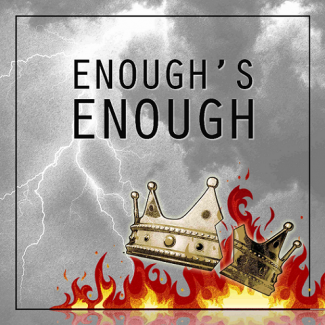All talks » The idol smasher
1) Manasseh was really bad
He sinned
He led others into sin
He was just like King Jeroboam I
Jeroboam son of Nebat, king of Israel | Manasseh, king of Judah |
“And they burned their sons and their daughters as offerings and used divination and omens and sold themselves to do evil in the sight of the LORD, provoking him to anger.†(2 Kings 17:17) | “And he burned his son as an offering and used fortune-telling and omens and dealt with mediums and with necromancers. He did much evil in the sight of the LORD, provoking him to anger.†(2 Kings 21:6) |
“Jeroboam son of Nebat … made Israel to sin†(1 Kings 16:26; 21:22; 22:52; 2 Kings 3:3; 10:29; 13:2, 11; 14:24; 15:9, 18, 24, 28; 17:21) | “Manasseh … made Judah to sin†(21:11, 16) |
Exiled to Assyria, 722BC | We can see where this is going… |
2) Josiah was really good
He heard God’s law and repented
He led others to hear God’s law and repent
He was just like King David
3) But the really good doesn’t cancel out the really bad
“Thus says the LORD, Behold, I will bring disaster upon this place and upon its inhabitants, all the words of the book that the king of Judah has read. Because they have forsaken me and have made offerings to other gods, that they might provoke me to anger with all the work of their hands, therefore my wrath will be kindled against this place, and it will not be quenched.†(22:16–17)
JOSIAH’S REFORMS (21:1-24) followed by this summary:
“Before [Josiah] there was no king like [Josiah], who turned to the LORD with all his heart and with all his soul and with all his might, according to all the Law of Moses, nor did any like him arise after him.†(23:25)
“Still the LORD did not turn from the burning of his great wrath, by which his anger was kindled against Judah, because of all the provocations with which Manasseh had provoked him. And the LORD said, ‘I will remove Judah also out of my sight, as I have removed Israel, and I will cast off this city that I have chosen, Jerusalem, and the house of which I said, My name shall be there.’†(23:26–27)
Jesus “walked according to†God’s law
Like Josiah, he walked in God’s law Like Josiah, he calls for repentance Unlike Josiah, he brought atonement
“God has done what the law, weakened by the flesh, could not do. By sending his own Son in the likeness of sinful flesh and for sin, he condemned sin in the flesh in order that the righteous requirement of the law might be fulfilled in us, who walk not according to the flesh but according to the Spirit†(Romans 8:3-4)
COFFEE QUESTIONS:
-What examples can you find of people trying to do good to compensate, when they are conscious of having done evil? You could think of examples in different religions, or in social situations, or in the internal struggling of our conscience.
-How does 2 Kings persuade you that attempts to pay God back are futile?
-What different motive does Jesus give us for doing good? Why is it more powerful?
